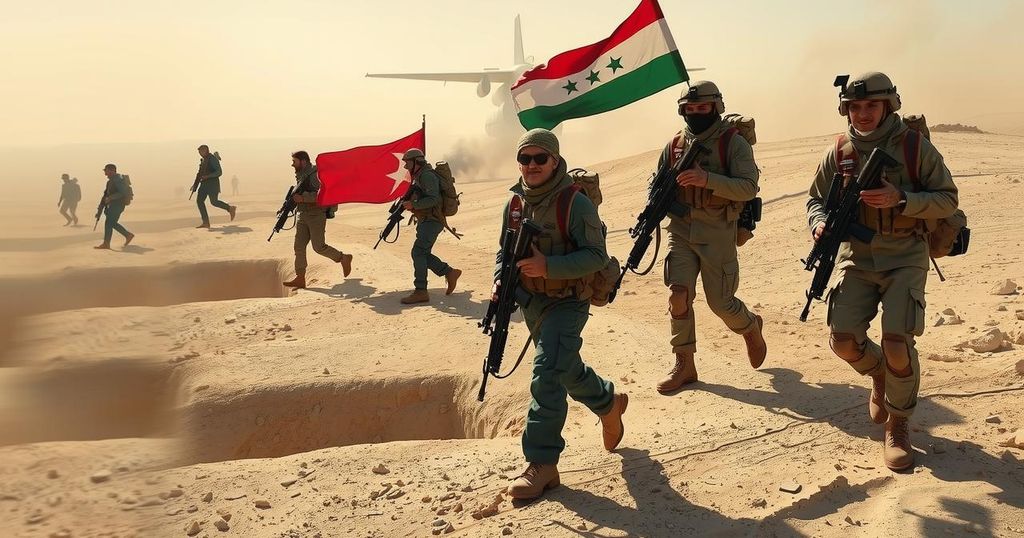The Kurdish forces allied with the U.S. in Syria face renewed threats from Turkey amidst changing political dynamics in the region. Despite their critical role in combating ISIS, ongoing conflicts with Turkish-backed factions and potential loss of territory place them at risk. U.S. diplomatic strategies are vital to protect Kurdish interests while navigating the complexities of Turkish relations.
The complex geopolitical landscape in Syria post-civil war poses significant threats to the Kurdish minority who have long been U.S. allies in combating the Islamic State. While the Syrian Democratic Forces (SDF) have played a crucial role alongside American forces in defeating ISIS, their safety is jeopardized by Turkey’s renewed aggression towards Kurdish groups, whom they regard as adversaries due to their supposed ties with the PKK, a long-standing separatist faction in Turkey.
As the situation in Syria evolves under the influence of the Islamist group Hayat Tahrir al-Sham, the Kurdish forces find themselves increasingly vulnerable. Analysts express concern that Turkey’s military support for rebel factions could lead to a significant escalation of hostilities against the SDF. The U.S. is faced with the delicate task of balancing its support for Kurdish forces with diplomatic engagements with Turkey, a NATO ally.
Recent confrontations highlight the precarious nature of the Kurdish defense, particularly as Turkish-backed militants carry out attacks against the Syrian Democratic Forces with logistical support from Turkey. The future of Kurdish control in northeast Syria is thus uncertain, hinging on possible U.S. backing and ongoing negotiations to salvage peace.
Moreover, looming threats include the potential invasion of Kurdish strongholds like Kobani, where Kurds previously allied with the U.S. fought off ISIS. Concerns are mounting among Kurdish leaders as they consider Turkey’s strategic motivations, which may exploit the ongoing chaos for territorial gains, potentially undermining U.S. objectives in the region.
The Kurdish forces in Syria, particularly the Syrian Democratic Forces (SDF), have been indispensable allies to the United States in the fight against ISIS. Over the last decade, these forces successfully reclaimed territory from the extremist group and detained numerous ISIS fighters. However, the withdrawal of U.S. troops and a political realignment favoring Turkey, a nation that views these Kurdish groups as a significant threat, has created an increasingly precarious situation for the Kurds. The recent influence of Turkish-backed militias further exacerbates tensions as the new political establishment in Syria shifts power dynamics.
The trajectory for America’s Kurdish allies in Syria is fraught with uncertainty, primarily due to Turkey’s aggressive stance against them. The dynamics following the Syrian civil war have placed Kurdish forces at the mercy of external pressures, complicating their previous successes in combatting ISIS. On the geopolitical stage, American intervention remains crucial to delineating the future of Syrian Kurdistan amidst rising hostilities, necessitating a consistent and strategic U.S. diplomatic effort alongside military considerations.
Original Source: www.nytimes.com






